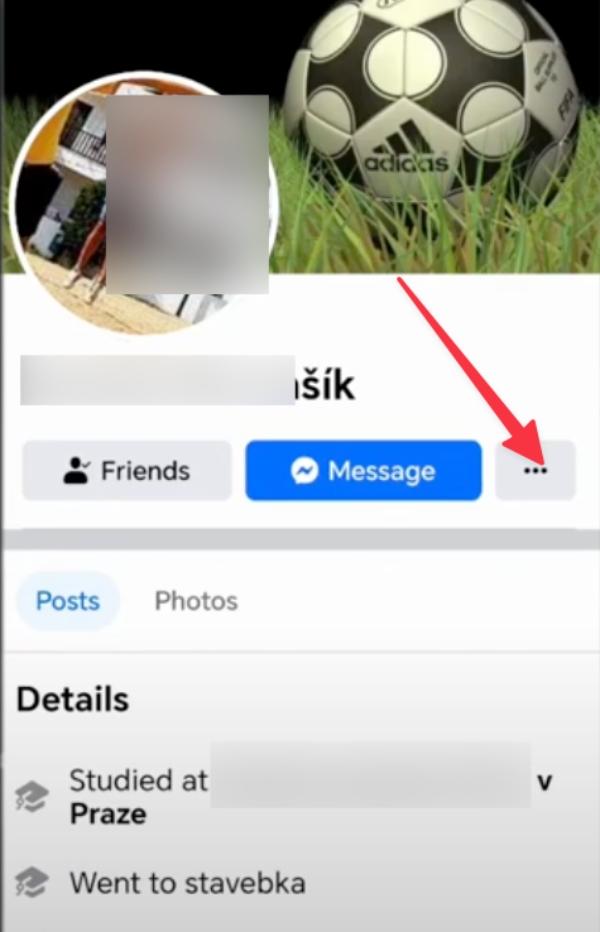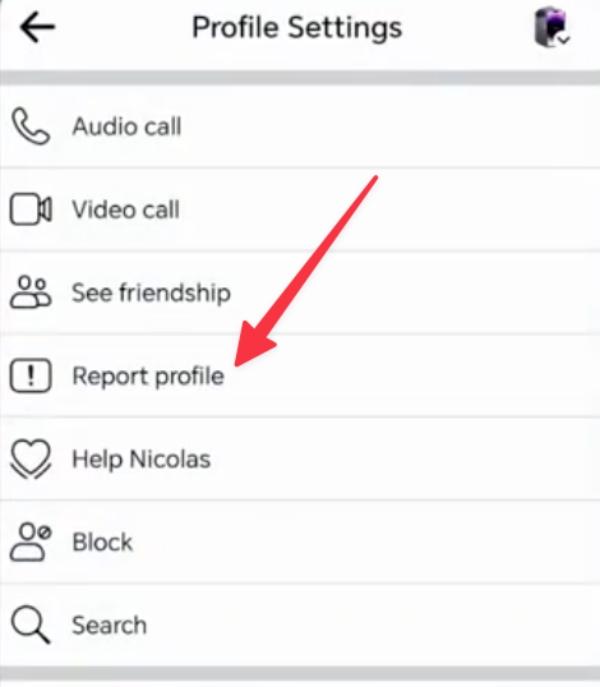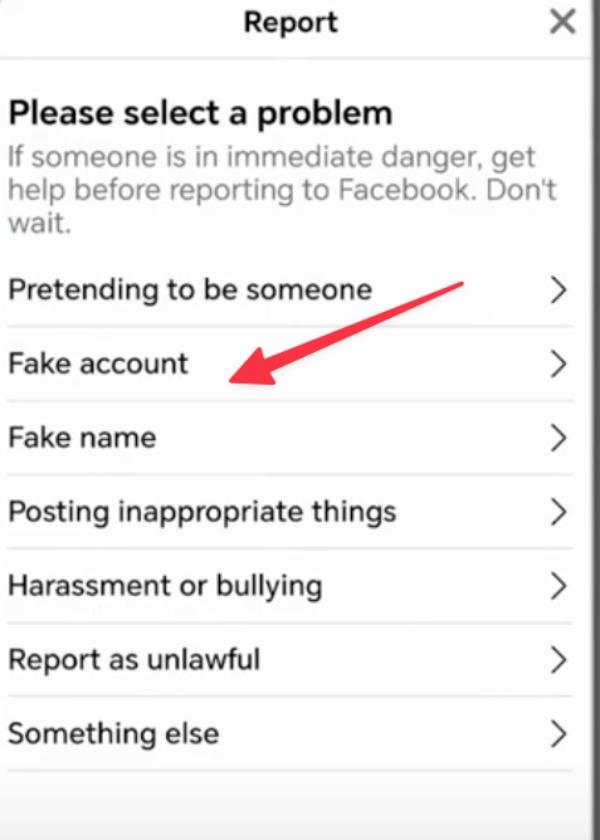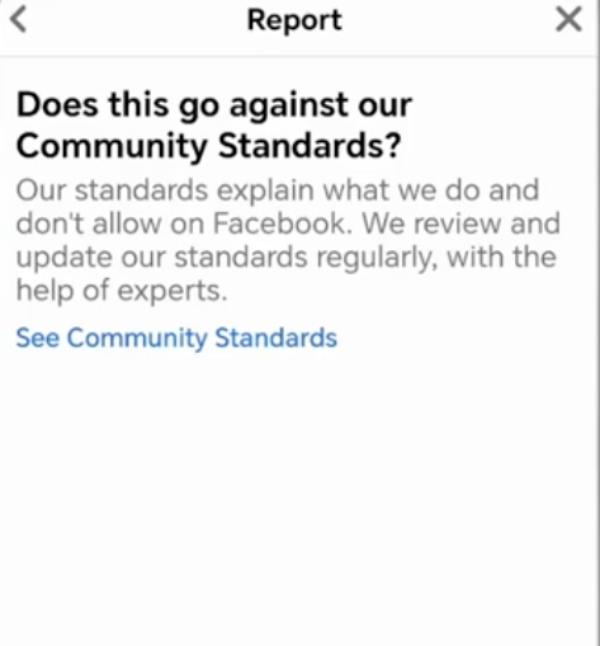Among the necessary skills that a parent should have regarding managing how they keep their kids safe when using the internet is identifying a fake Facebook account.
Having over 3 billion active users, Facebook is one of the biggest targets of scammers, cyberbullies, and predators who use fake profiles to attack innocent, unaware users.
These fake accounts are associated with a set of risks. Including inappropriate interaction with underage users, along with identity theft and money fraud.
This parental advice guide will therefore provide you with tips to look out for, how to be careful, and how to respond when you or your child face a fake profile on Facebook.
What is a fake Facebook account?
A fake Facebook account is an account that is made out of a fake identity or a fraudulent identity.
Unlike an account that’s representative of a real person, business, or organization, scammers create fake accounts to deceive people for various purposes, usually with malicious intentions.
These accounts are in contravention of Facebook’s terms of service, which insist users sign up using their real name and identity.
They cause a major problem on the platform, and scammers use them for everything from scams to spreading false information.
Here are a few examples of some of the types of fake accounts:
Impersonation accounts
These are fake Facebook accounts created to pretend to be a certain real person and act like it’s them running the account.
The account might use the person’s name, profile picture, and even public posts to fool friends and family into believing it’s the real person.
The intention is often to send messages to the person’s contacts claiming to be in an emergency and requesting money. Or to cause reputational damage.
Catfishing accounts
Though catfishing can be a form of impersonation, it refers more specifically to the creation of a fake identity, for romantic or manipulative reasons.
They use stolen photographs and staged life details to create an authentic-sounding persona. The goal is to mislead and emotionally exploit a victim, often resulting in financial scams.
A telltale sign of a catfishing account is that the person will never meet up or even do video calls.
Bots and automated accounts
With automated accounts, it is software, not human beings, that is controlling these accounts.
Oftentimes, they are used to help automate spam, to help spread disinformation, or to help you boost engagement metrics (likes, shares, comments).
You can tell them because of their many and rapid posts, but with profiles that appear to be manufactured using stock photos.
Scam accounts
Scammers do not create these kinds of accounts for good purposes but to further their evil intents to carry out fraudulent schemes.
They could be a business offering giveaways, or a charity asking for donations for a cause that didn’t exist.
They tend to deceive and use an urgent tone to persuade and trick people into clicking on a malicious link or sending money or personal information.
Stay alert and safeguard your child from fake accounts with real-time notifications.
How to spot fake Facebook accounts?
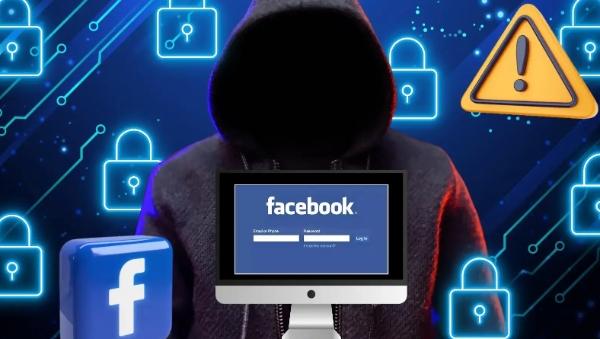


Being able to spot fake Facebook profiles is a skill no parent should be without.
It’s about getting deep, recognizing the subtle and significant telling signs that an account isn’t what it says it is.
Common signs of fake accounts
A fake Facebook profile tends to cut corners, leaving trails of digital breadcrumbs that can reveal to you that the account is fake.
Incomplete profiles
A legitimate person’s profile will typically be populated with personal information such as their workplace, school, life events, and so on.
But a fake Facebook account will have little or generic detailed information. For example, it may say an unspecific job title such as “self-employed”.
This lack of detail is a conscious decision so as not to give away information that may be used to identify them.
Suspicious profile and cover photos
Often, images used by crooks for unfamiliar pseudo accounts are dead giveaways.
They use a professionally photographed image of an attractive model, or use a blurry, low-resolution photo in profiles.
But then, the photo album of a real person often contains a diverse set of personal photographs. Not just one or two generic unrelated photos.
Unusual friend list and requests
Real people usually have a mix of family, friends, and acquaintances on their friend list.
But a fake account, on the other hand, either has an abnormally large number of friends or very few.
Often, their friends are a random selection of strangers from all over the world, with little in common.
Recent account creation
A majority of legitimate accounts have been in existence for many years.
But if you see someone who created a profile only a few days or weeks back, yet it already has lots of friends, then that’s a red flag.
This usually means the person set up the account for a special, and often malicious purpose.
Analyzing account activity
Aside from an initial profile, the behavior of the account can be a hint at what it’s all about. A real user’s behaviour is natural, whilst a fake account’s behaviour tends to be automated.
1. Posting frequency and content
Real people share all types of things from personal photos to status updates, to shared links and memes.
A fake account, on the other hand, might post a series of posts very quickly in quick succession, before being quiet.
The content itself also tends to be repetitive, for example, a constant flow of motivational quotes or clickbait articles.
2. Engagement and interactions
Real humans tend to have a history of comments, likes, and photo tags from friends and family.
However, a fake account often only initiates one-way interaction. You’ll see them post things and have little to no real engagement in the comments.
Their comments on other people’s posts are often generic and a clear copy-paste job, as in “Nice pic” or “Hi, how are you?”.
3. Grammar and language errors
An ongoing pattern of incorrect grammar, poor or sloppy spelling, or clunky phrasing can also be a tip-off.
This is particularly so if the account claims to be from a native English-speaking country, but messages or postings read as if they had been poorly translated.
Such is good evidence that the person running the account is probably a non-native speaker.
Risks of a fake Facebook account for kids
For kids, stumbling upon a fake Facebook account isn’t just an annoyance; it may put them in serious danger.
Their immature minds and their natural inclination to trust are what make them so vulnerable to the individuals who take advantage of fake profiles.
These dangers of fake Facebook accounts have the potential to create indomitable effects on a child’s mental and physical health in the long run. Some of these risks include:
- Scams and Phishing: Fake accounts trick children with synthetic offers such as free gaming credits, which would then lead to phishing links. These links steal their information or infect their devices with viruses and put their family’s privacy at risk.
- Predatory Contact: Using fake accounts, predators are employing the guise of peers to groom kids for exploitation by building trust levels through private conversations.
- Inappropriate Content:. Fake accounts post content that’s harmful to children – including disguised adult content that can have a psychological impact on children.
- Cyberbullying: Anonymized fake accounts can be used to bully kids by sending them cruel messages or shaming them publicly, causing them emotional distress.
According to a report from the Pew Research Center, close to half of the teens in the US have been victims of cyberbullying.
The study found name-calling and spreading false rumors about a person to be the most common types of harassment.
Parents should, therefore, know about these digital dangers and take proactive steps to ensure that the online atmosphere is as safe as possible.
How to report a fake Facebook account?
If you suspect a Facebook account is fake, please follow these steps to report it.
- Step 1. Go to the profile of the fake Facebook account that you want to report.
- Step 2. Click on the three dots (ellipsis) next to the cover photo, or next to the Friend/Add button.
- Step 3. Click on ‘Find support or report profile’ in the drop-down menu.
- Step 4. On the pop-up window, choose the reason for the report as ‘Fake account’.
- Step 5. Send the report to Facebook by clicking the “Submit” button to confirm your choice.
- Step 6. Facebook will go through the profile. They’ll inform you when they take action.
The process of reporting is confidential, so that the one who has created the fake Facebook account does not know who has made the report.
It’s an easy but effective way to help make the platform a safer place for everyone, especially your children.
How to protect your children from fake Facebook accounts?
To ensure kids are safe from the dangers of a fake Facebook account, an approach that incorporates both education and intelligent technology is needed.
Teach online privacy basics
Teach your child how to set up his Facebook profile to private. This is so that only the people that they know can see their post and photos.
Make sure they understand that they must never accept friend requests from people they don’t know in real life.
Remind them to use strong and unique passwords that cannot be easily guessed and not to share them with anyone.
Children also need to be taught never to give out sensitive information, such as their address, to people they’re unfamiliar with.
Even casual interactions with people that they’ve never met before can pose some risks of divulging personal information.
Parental control tip: Use FlashGet Kids
Whilst education is a very important aspect, kids can be curious or make mistakes. Parental control app is an essential safety net to keep track of (and control) their activity.
An app such as FlashGet Kids would allow parents to monitor their child’s online activity and put in place some measures that would help protect them against a fake Facebook account.
FlashGet Kids doesn’t stop at basic controls. It offers specific features that help mitigate the risks of social media and fake accounts. Some of these key features include:
- Social App Detection. FlashGet Kids automatically monitors your teens’ activities in social media apps, including Facebook, and offers parents real-time alerts about their children’s social media activities.
- App Blocker. This feature allows parents to block access to Facebook or specific apps during certain hours (e.g., homework hours) or permanently if there are concerns over fake accounts.
- Usage Reports. FlashGet Kids puts together complete reports of what your kid’s device was used for. This helps the parents know the online behaviour of their kid.
- Screen Mirroring. Allows you to see what is happening on your child’s screen in real time. And therefore spot the fake accounts or harmful conversations early.
With the always-watchful eye of a tool like FlashGet Kids, you build up a layered defense system.
This way, you’re still giving your child the feeling of freedom growing up. All whilst keeping limits in place to protect them from the very real danger of a fake Facebook account.
Conclusion
A false Facebook account is more than just a nuisance – it can be a serious threat to children’s safety and privacy.
By being able to identify suspicious profiles, spot them early, and employ tools for safety, such as FlashGet Kids, parents can protect their kids from scams, identity theft, and negative experiences.
But above all communication is important. When kids feel comfortable talking to you about their Internet experience, it’s possible for you to step in early and guide them.

